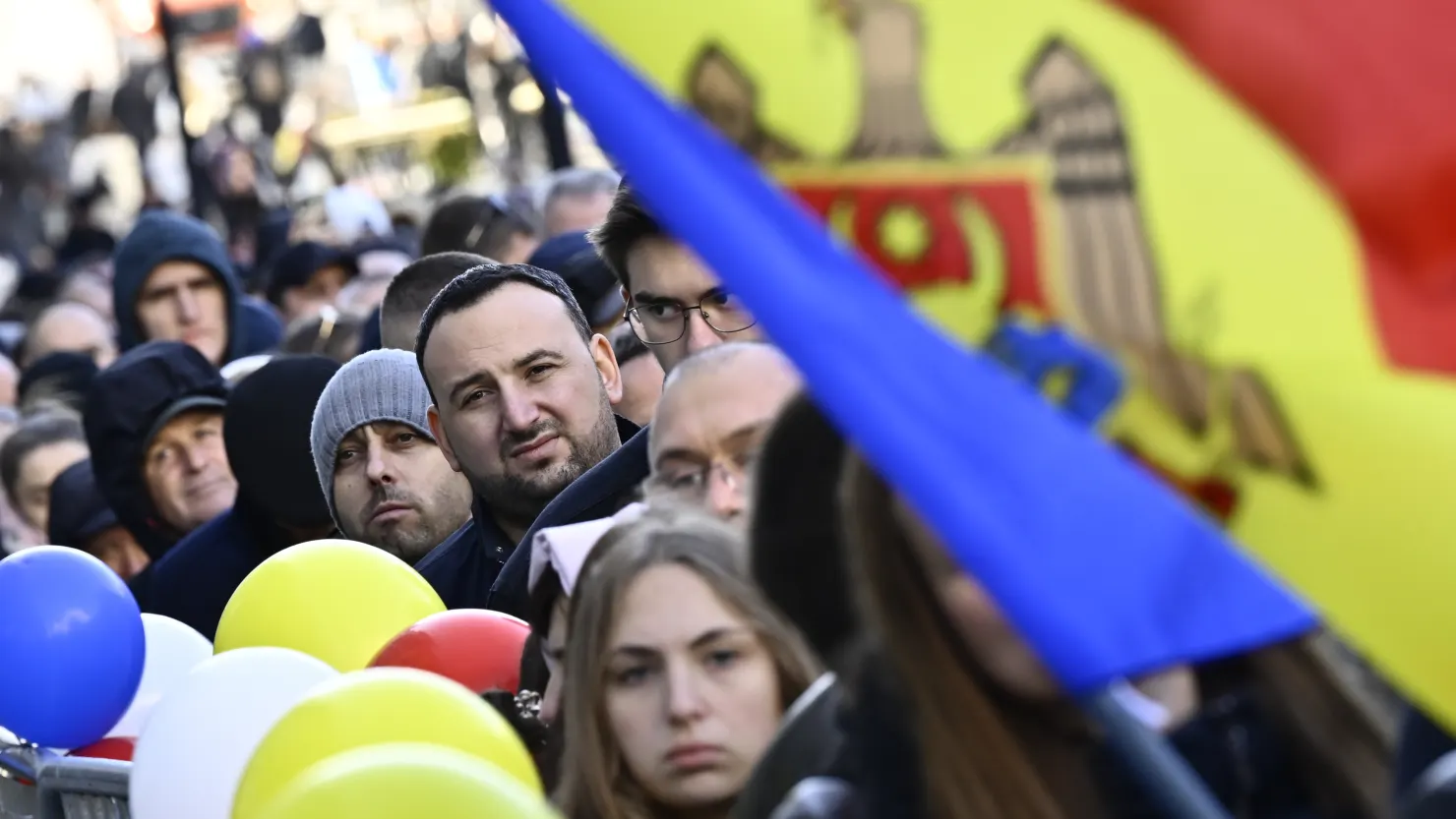Moldova’s political future remains uncertain after two key votes over the weekend revealed a deeply divided nation on the path forward — either toward integration with Europe or continued alignment with Russia.
On Sunday, Moldovans participated in a presidential election and a referendum on whether to solidify the country’s pursuit of European Union (EU) membership by enshrining it in the constitution. Incumbent President Maia Sandu, a pro-Europe leader, will now face a runoff against her euroskeptic opponent, Alexandr Stoianoglo, after neither candidate secured an outright victory.
In the referendum, just over 50% of voters — 50.16%, according to a preliminary count of 98.56% of ballots — voted “yes” to make EU membership a national priority. The slim margin reflects a nation grappling with deep internal divisions on its geopolitical future, torn between its historical ties to Russia and a growing desire to join the Western bloc.
Moldova, a small and largely agrarian country situated between Ukraine and Romania, has long oscillated between pro-Russian and pro-European leaderships since the collapse of the Soviet Union in 1991. Sunday’s referendum, although non-binding, is seen as a crucial signal of Moldova’s long-term aspirations following formal EU membership talks initiated in June.
Despite the narrow victory for the pro-EU camp, Moldova’s leadership accused Russia of attempting to manipulate the election results through vote-buying efforts to influence the presidential election and sway the referendum outcome in favor of pro-Russia interests. The accusations come amid heightened tensions between Moscow and European powers over the future direction of former Soviet states.
“Criminal groups, working with foreign forces hostile to our national interests, have attacked our country with tens of millions of euros, lies, and propaganda, using the most disgraceful means to keep our nation trapped in uncertainty and instability,” President Maia Sandu said in a statement on social media platform X. She claimed that these groups aimed to buy 300,000 votes in a bid to undermine Moldova’s democratic process and foster division.
Moldova has faced an unprecedented assault on our country’s freedom and democracy, both today and in recent months.
— Maia Sandu (@sandumaiamd) October 20, 2024
Sandu’s Party of Action and Solidarity has yet to provide evidence supporting the claims of vote-buying. However, multiple Moldovan officials have pointed fingers at Russia, alleging that Moscow was behind the interference campaign leading up to the election.
In response, the Kremlin has strongly denied any involvement. “We categorically reject these accusations,” Kremlin spokesperson Dmitry Peskov said last week, according to Russian state news agency Tass. “We do not interfere in other countries’ internal affairs,” he added.
Following the vote, Peskov reiterated his position, describing the election as “not free” and expressing concern over the surge of votes in favor of President Sandu and the EU, in comments translated by Reuters.
As Moldova heads toward a second round of voting in the presidential race, the slim majority in favor of pursuing EU membership leaves the country at a crossroads. The outcome will have profound implications for Moldova’s future, either aligning more closely with Europe or continuing its complex relationship with Russia.





